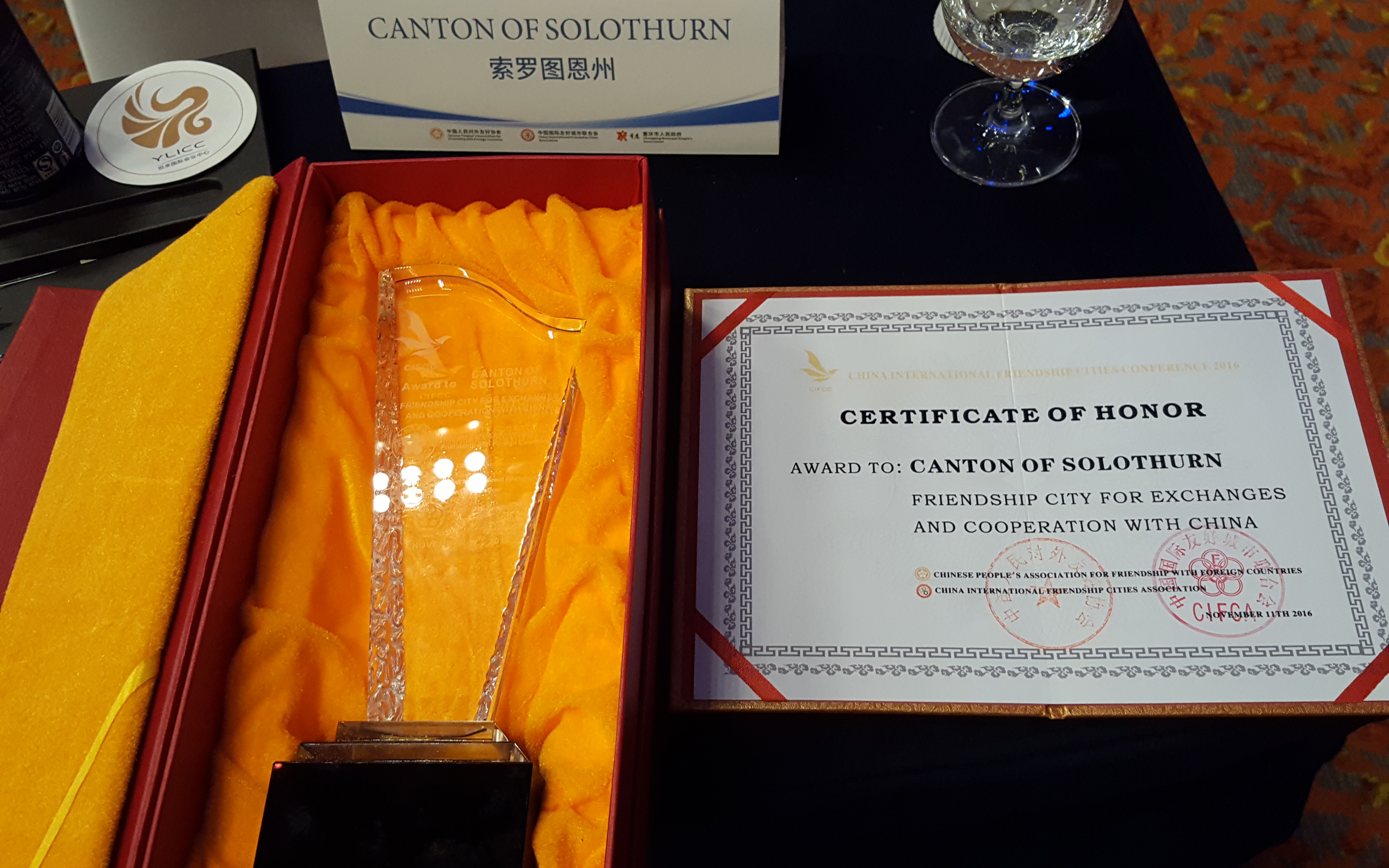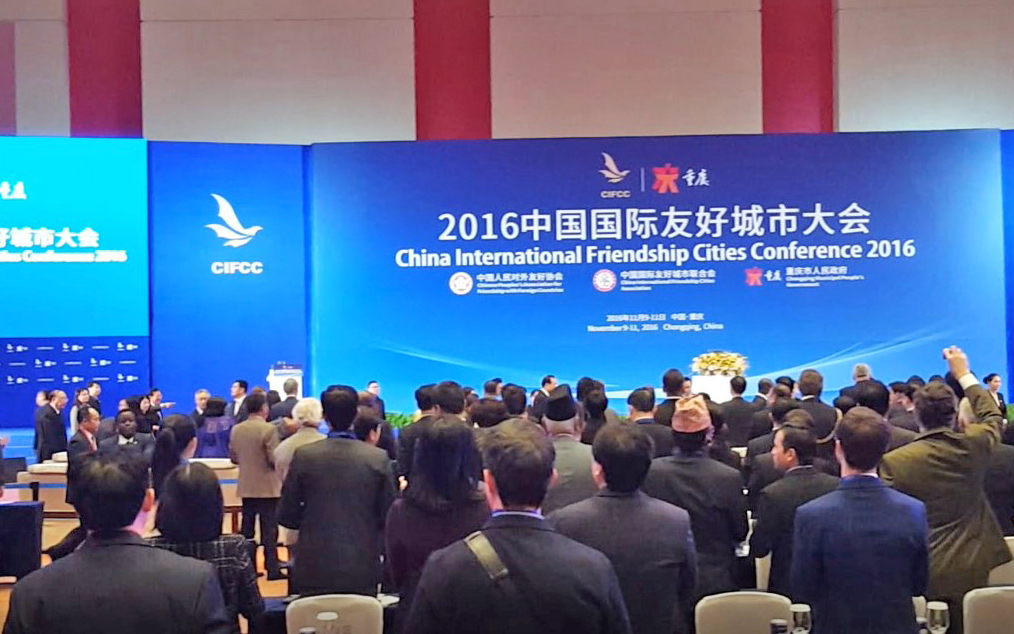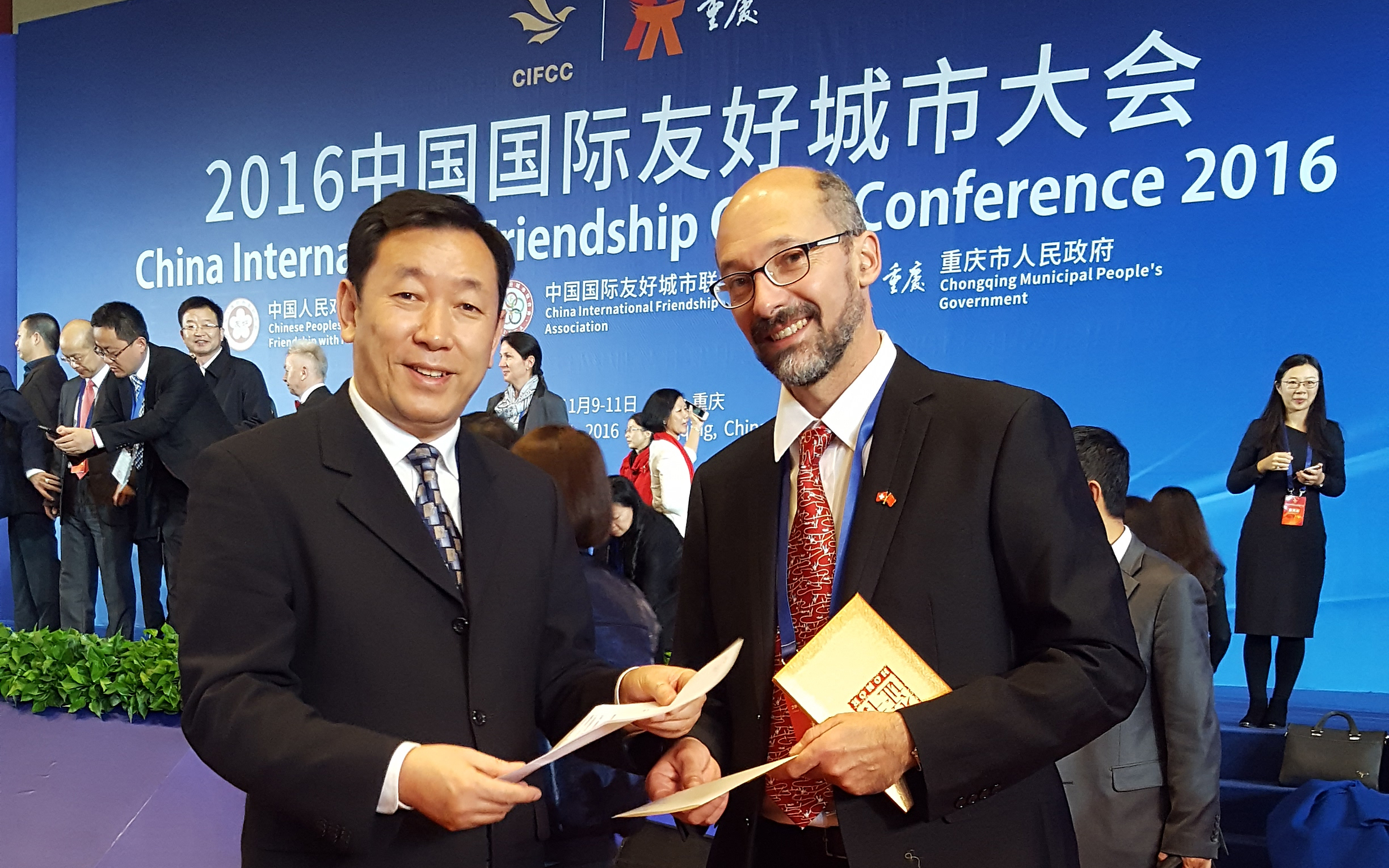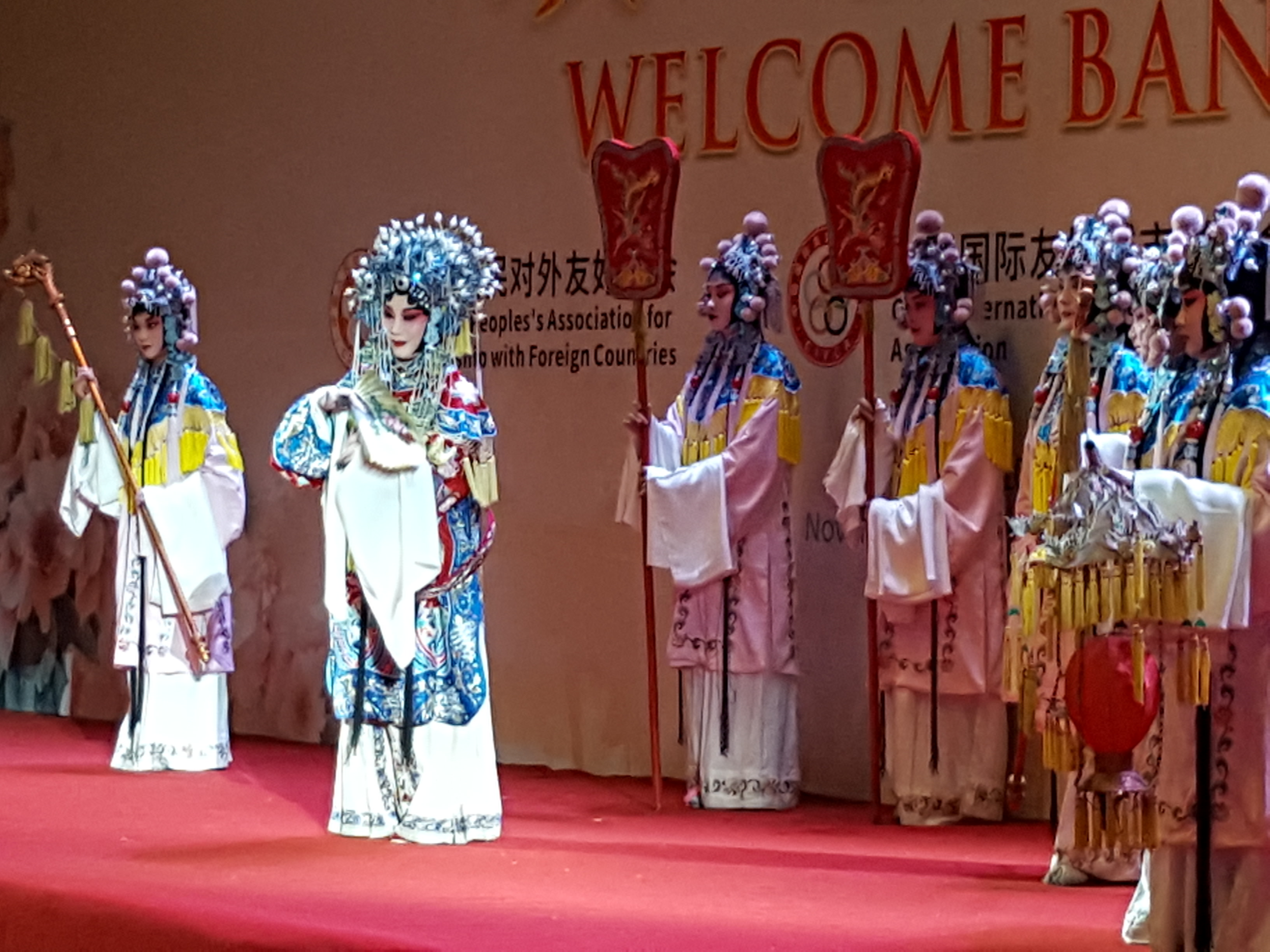The concept of "Sister Universities"
Stephan Jüngling, Deputy Head of the China Centre at the FHNW School of Business, is fascinated by the potential of town twinning. He wants to apply the fundamental idea of this concept to the international university landscape under the term "Sister University" - initial experience is already being gained with Shenzhen Technology University (SZTU), the first university of applied sciences in China.
It all began with the large Congress of Town Twinning in Chongqing, where representatives from all countries met in the world's largest city in 2016 to exchange experiences. Cities from Switzerland were also there with their Chinese twin cities: Basel (with Shanghai), Zurich (with Chongqing) and Solothurn (with Gansu). Stephan Jüngling, a lecturer in business information systems at the FHNW School of Business since 2012, was taking part in a month-long training course of the International Fellowship Program in China at the time.
He neither knew about this congress nor was he familiar with the giant city on the Yangtze River with its 34 million inhabitants; at least not until he received an invitation to accept a city twinning award there for the canton of Solothurn.
Stephan Jüngling was deeply impressed when he attended the congress events, company visits and excursions a few days later and received the award in the sea of lights of the huge conference hall with over a thousand people.
It suddenly became clear to me how little we really knew about this city and the incredible potential of the concept of town twinning. And I wanted to change that.
Stephan Jüngling noticed the way in which the children's hospitals in Basel and Shanghai exchange experience and benefit from synergies in direct contact and without first setting up complex structures. This was something he wanted to extend to universities of applied sciences. It then provided the impetus for a “Sister University”. After all, the School of Business' approximately 190 partner universities enable students and faculty to engage in mutual exchange and joint courses in addition to research projects – often limited to one semester. What is lacking, however, according to Stephan Jüngling, is low-threshold contact and a continuous exchange of experience between the countries. The project to link students and lecturers across continents and work out how such virtual meetings could ideally take place is still in its infancy. As Stephan Jüngling comments "You can answer the question of how marketing works in China on the basis of literature research alone – or you can exchange ideas with someone in China who teaches it actually."
In cooperation with the Impact Lab of the FHNW, the first "web talk" with students, lecturers and start-ups from Olten and Shenzhen took place at the end of March. After a short introduction by the two universities and the Swiss Innovation Challenge, four start-ups presented their business ideas and collected feedback from the different cultures. Among these was an impressive account by Avenwood of how a small Swiss start-up can quickly and successfully transition to the online market and grow successfully despite losses due to COVID-19 at domestic Christmas markets. A student from SZTU showed how the marketing of tea could be supported using We Chat. Another Chinese young company had developed a toothbrush with sensor technology for children, i.e. a "smart toothbrush". They elaborated during the web talk how their initial idea of sending data to the parents' mobile to better monitor the brushing of their 6-10-year-old children's teeth evolved. After initial discussions with potential clients, it was clear that it should be done differently. The sensor technology should only be used for active monitoring, for example, to adjust the rotational movements if too much or too little pressure is applied during brushing.
Another project enables direct collaboration between students at SZTU and FHNW for the first time and is being carried out as part of the Independent Learning Module of the Master of Science in Business Information Systems. This small research project addresses mobility management and combines machine learning, video analysis and tracking to accurately measure and evaluate passenger behaviour. This is easy to implement in Shenzhen but cannot be implemented in this form in Switzerland due to the data protection of individuals.
This "Web Talk" also took place for the first time in this interactive and low-threshold form. Around 40 people took part, around two thirds from Switzerland. The event also showed that there is a language barrier, especially when English is spoken at high speed. In addition, the use of the video chat still needs to be practiced, as there are different cultural expectations as when to have your camera on and how to get involved in the discussion. Stephan Jüngling, who is in the process of learning Chinese, has been interested in such issues for years.
Students in China learn much more broadly and know much more about us than we do about them.
Mina Fu, master’s student in Business Information Systems in Olten, is now scientifically evaluating the event. Her master’s thesis ("Development of a Sister University Concept") aims to show how collaboration between SZTU and FHNW could be intensified in order to realise our mission of educating students as innovative and responsible leaders for a globally networked world, based not only on theoretical knowledge but also on practical experience.
In July, when Mina Fu’s master’s thesis is completed, the results will be available to determine the next stage of the project.





